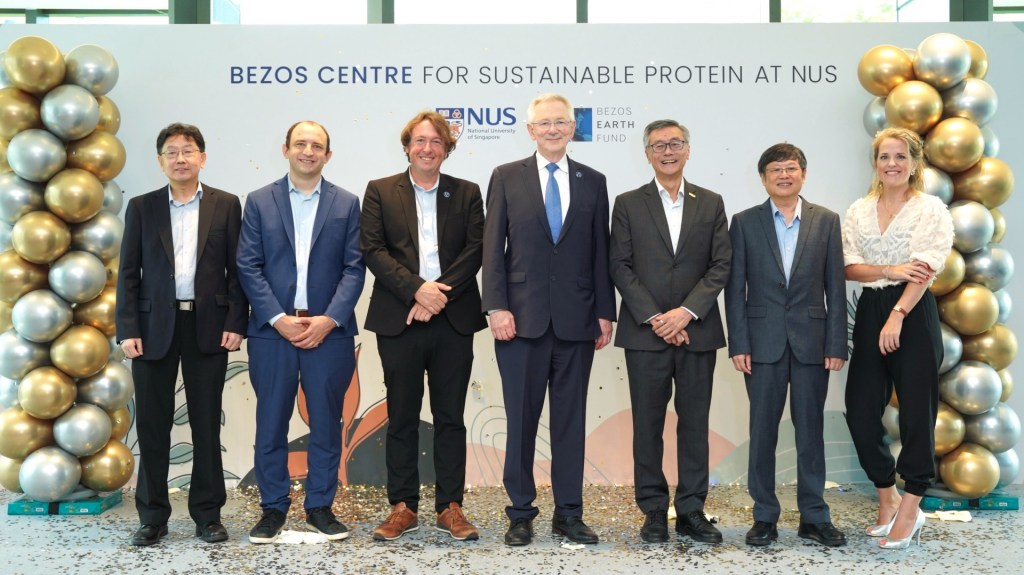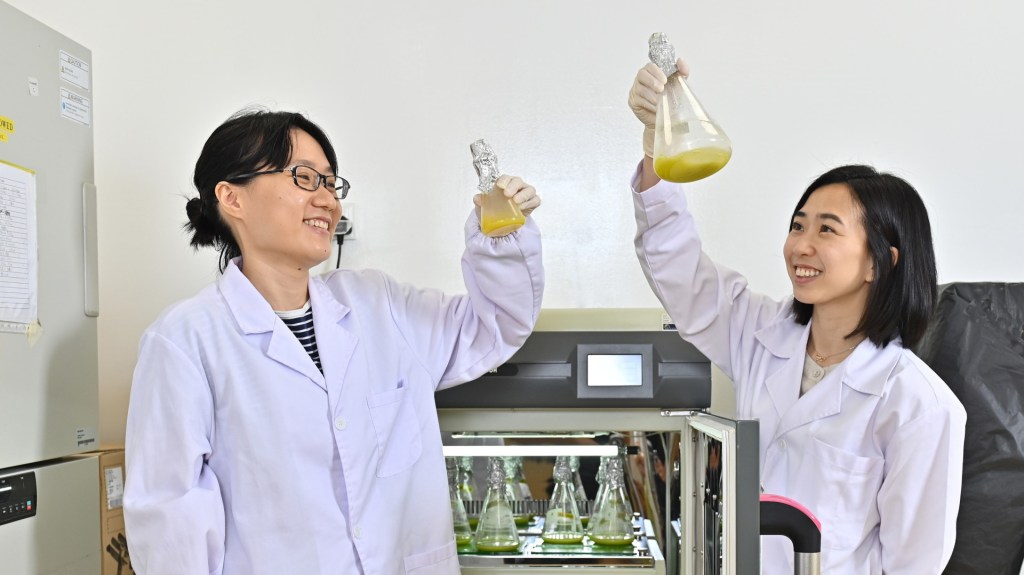The Bezos Centre for Sustainable Protein at the National University of Singapore (NUS) was launched on 5 September, the centre being the first of its kind in Asia.
With a US$30 million grant from the Bezos Earth Fund, the Centre said it is poised to lead research and commercialisation efforts to develop “ultimate proteins” – advanced hybrid foods that match traditional meat–based products in both taste and price.
NUS said in a statement that a priority area will be biomass fermentation, which, for example, utilises tofu waste to feed algae, creating high-quality protein.

The NUS Centre joins similar Bezos Centres at Imperial College London in the UK and North Carolina State University in the United States. The Centre’s primary focus areas include microalgae and biomass fermentation, supported by complementary research into cultivated meat and plant-based technologies.
“NUS and the Bezos Earth Fund are united by a shared commitment to actively combat climate change. The world’s growing appetite for meat has put a huge strain on our global food system, and we need to develop sustainable food solutions with researchers, government and industry,” said Professor Tan Eng Chye, NUS President.
“With the generous support of the Bezos Earth Fund, we look forward to leveraging our unique position in Asia to drive innovation and collaboration across the region, ensuring sustainable protein solutions that benefit consumers and industry, and protect the environment.”
“Asia is pivotal to the future of sustainable proteins, and Singapore is leading the way,” said Sir Andrew Steer, President and CEO of the Bezos Earth Fund. “The new Centre at NUS harnesses the region’s influence and expertise to drive solutions that can reshape food systems globally, with significant potential impact for East and South-East Asia’s 2.3 billion consumers.”

“The NUS Centre is pioneering breakthrough innovations, such as transforming tofu waste into high-quality protein – a practical example of zero-waste, circular economy principles in action,” said Dr Andy Jarvis, Director of Future of Food at the Bezos Earth Fund. “As part of our US$1 billion commitment to reshaping food systems globally, this Centre – alongside our network of sustainable protein hubs – will drive lasting change that meets both environmental sustainability goals and consumer needs.
The Good Food Institute (GFI) played a key role in partnering with the Bezos Earth Fund to develop its alternative protein strategy. Through its work as a scoping partner, GFI has helped craft the vision for the Bezos Centres for Sustainable Protein
“With meat demand skyrocketing across the world’s most populous continent, the opportunity for large-scale transformation in Asia’s food supply has never been greater,” said Mirte Gosker, Managing Director of the GFI APAC. “By connecting Singapore’s brightest scientific minds with their counterparts in other global innovation hubs, the Bezos Centre at NUS has the capacity to fully unlock the enormous economic and ecological potential of sustainable proteins.”
The Earth Fund was established in 2020 from a commitment of $10 billion from Amazon founder and executive chairman Jeff Bezos to be disbursed as grants to address climate and nature challenges within the current decade.
To stay up-to-date on the latest industry headlines, sign up to Future Alternative’s enewsletter.
Posted on:


